Planting method and Propagation of Flowers-- Air Pineapple
Before understanding how air pineapple is planted and maintained, it is necessary to understand some basic conditions of air pineapple. Air pineapple, as its name implies, does not need soil in flowerpots, but also can simply rely on the air. plants that absorb water, oxygen, and nitride from the air. The secret that the air pineapple does not need to rely on its roots to absorb water from the soil is that the dense scales on its leaves absorb water. These scales have many shapes, the most typical of which are shield-shaped and densely covered on the epidermis. The aerosol or Rain Water in the air will be intercepted by the depressions of its epidermis and slowly seep into the plant through the voids of parenchyma cells, thus obtaining the water and nutrients needed for growth and development. Therefore, the air pineapple is a drought-tolerant air epiphyte, which can also be called a perennial epiphytic, aerial herb.
Cymbal
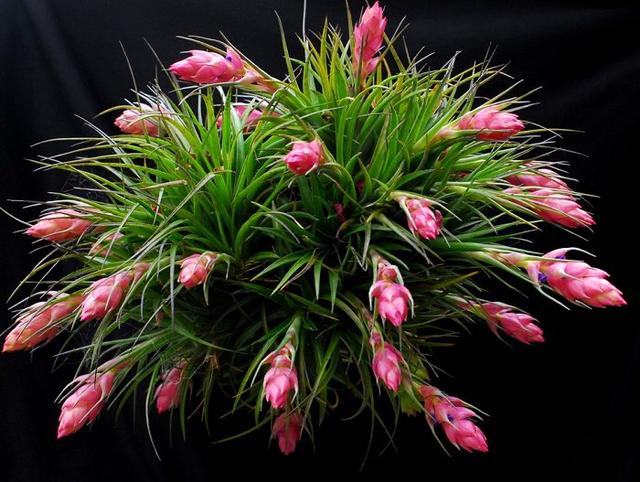
Air pineapple can not only observe leaves, but also enjoy flowers, the plant is only about 5-8CM size, large up to 1-2 meters. There are individuals who grow independently and groups that grow in groups. Plant leaves into radial, spherical, curved, natural drooping and other forms, different shapes are also the attraction of air pineapple. The leaves are mainly Cheng dark green, light green, silver and white. Florescence is generally concentrated in spring and autumn. Even if you neglect to take care of it, it will bring you different surprises.
The suitable growth temperature of air pineapple is 20-25 degrees Celsius, extreme temperature can resist up to 5 degrees Celsius, high temperature can reach 40 degrees Celsius. However, if in the case of low temperature in winter, we should pay attention to water control, low temperature weather do not let the air pineapple soak for too long, otherwise it is easy to cause frostbite. On the contrary, in the case of high temperature in summer, we should pay attention to ventilation and spray more water as appropriate. But remember, no matter what season it is. Any kind of weather is fine. Air pineapple is the most important thing to need ventilation, do not let air pineapple stuffy, do not let air pineapple stagnant water, otherwise it is easy to cause virus infection to cause heartache.
Cymbal
With regard to lighting, air pineapple can be placed in a position of astigmatism, without exposure or direct exposure to the fierce sun, otherwise it is easy to cause leaf sunburn. However, different varieties also have different needs for light intensity, if the leaves with more silver-white phosphorus flakes can give stronger light, if the leaves are light green and naturally drooping, the varieties can be placed in a relatively cool position where astigmatism can reach.
Cymbal
According to the different lighting conditions, the air pineapple can be simply classified into three varieties, and the planting strategy can be adjusted appropriately according to the different varieties.
1, green leaf species: smooth leaves without scales, soft leaves will naturally droop, low sunshine, high water demand.
2, semi-green leaf species: those between silver leaf species and green leaf species can be classified into this category. (semi-silver leaves)
3, silver leaf species: the leaf surface is covered with scales, the appearance is silvery white to green gray, the leaf is hard and rough, it almost does not droop, it needs high sunshine and low water demand.
Cymbal
Air pineapple is a relatively novel variety, and the way to start is basically online shopping, so it is necessary to understand how to deal with air pineapple, and points for attention after receiving air pineapple:
Please do not rush to water the air pineapple after it has been in hand. It is not suitable to water the air pineapple immediately after it has been transported for a long time to the new environment. First, take the air pineapple out of the packing box and put it in its air circulation place to let the air pineapple familiar with the new living environment.
2, three days later, when Kongfeng is familiar with the environment, she can take a bath to stretch her muscles and bones. Keep in mind that the soaking time is not too long and is generally controlled at about 2-3 hours. The empty Phoenix after soaking in the bath will bring a new feeling to the parent.
3. After adapting to it, Kongfeng should trim it. At this time, you should check whether there are withered or rotten leaves. If so, please cut it off in time, so that Kongfeng can grow better. Then observe whether Kongfeng has taken root. If it does, it proves that Kongfeng has adapted to the new environment. If not, don't worry. Air pineapple is a kind of "shy" plant. Give it more time to get to know each other.
4. Finally, warm reminder: air pineapple must pay attention to a good amount of water, would rather lack than more, things will be reversed at the extreme. Remember that. The most important thing is to ventilate and scatter light.
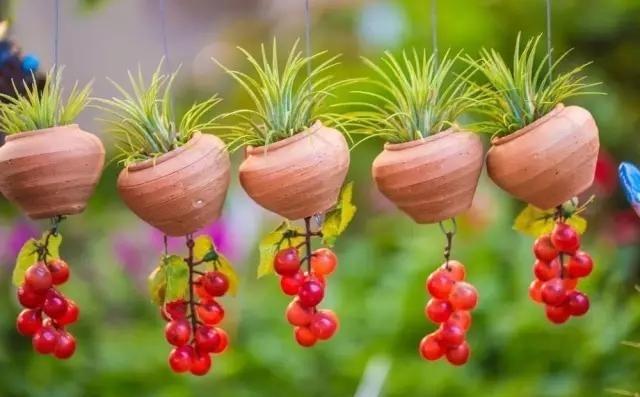
Points for attention in the process of planting air pineapple:
1, observe more and care more. If you find rotten leaves that need pruning in time, it is difficult to dry because the rotten leaves have no stomata and no breath after wet water, while the difficult drying of dead leaves can easily lead to air pineapple rotting heart.
2. Don't always play with the air pineapple in your hand when you have nothing to do. It takes time for the air pineapple to adapt to the new environment. After adaptation, the air pineapple will be "frightened".
Air pineapple is a plant in the air, not a plant in water. Remember not to have too much water, or you will die.
Spring: air pineapple is the most active growth cycle, please do not miss this opportunity, pay attention to the air pineapple, they will definitely give you unexpected returns. Generally in the spring 2 days or so watering, after watering, you can use your hands to pick up the air pineapple, gently shake a few times and then put to the ventilated place to cool dry, as far as possible in the case. Completely dry in 3-5 hours.
Summer: when the humidity is below 80%, you can spray water once every 2-3 days. During the day, the air pineapple is in a state of exercise breathing. Please do not water it during the day, otherwise the water will block the breathing hole and cause the air pineapple to suffocate or even suffocate. Generally, please choose to water after night. In the whole summer, because the temperature is relatively high, the growth rate of air pineapple is relatively slow, please pay attention to avoid exposure or high temperature.
Autumn: air pineapple blossoms in autumn, some air pineapple will blossom in autumn, watering should be paid attention to at this time, water should not be sprayed to the bud as far as possible, otherwise it will easily lead to stuffy bud after wet water. Generally, the air is relatively dry in autumn, and the air pineapples are short of water. If some particularly dry places can choose a small spray every day and a big spray every three days, try to keep the humidity around the air pineapple.
Winter: because the temperature is relatively low in winter, most air pineapples will choose to close their stomata to avoid the cold, so they are generally controlled to water once or twice a week in winter, and they can bask in the sun and keep warm during the day.
The above water spraying times are for reference only. Specifically, each Phoenix friend has to make a judgment according to different regions, weather conditions and air pineapple conditions.
4. Put it in the most ventilated position in your house if conditions permit.
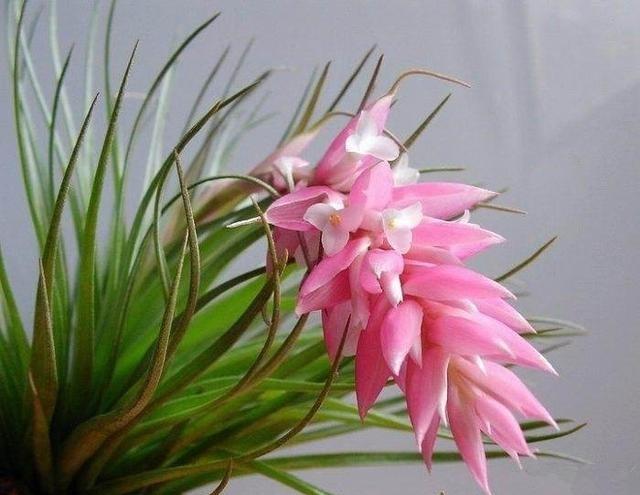
5, the reproduction of air pineapple: generally, air pineapple blossoms only once in a lifetime, and new buds (children) will appear at the bottom of the mother plant after flowering. At this time, Phoenix friends must not rush to remove the new buds or separate them from the mother plant. Air pineapple is the same as other animals and plants, children need their mother to provide nutrition to them when they are young. If the mother and child are separated too early, it is easy to cause the child's lack of nutrition and lead to extremely slow growth and even death. In general, it is best to wait for the new bud to grow to one-third or even two-thirds of the mother plant before allowing the new bud to be separated from the mother plant, and then the maintenance of the new bud can be the same as that of the mother plant.
Cymbal
Diseases and insect pests that may be encountered in the process of planting air pineapple:
Burning disease on the 1st: it often occurs when the light is sufficient. Due to improper operation, the water spray does not dry in time on the leaf surface. The water droplets act as convex lenses to burn the leaves below the water droplets, but they will not spread. Pay attention to ventilation in peacetime maintenance.
Heart rot and root rot: it is also the most common disease of air pineapple. Heart rot destroys the tender leaves in the center of the plant, making the tissue soft and rotten, and the smell of rot and mildew can be smelled. Finally, the growth point was separated from the whole plant. On the other hand, the root rot disease showed that the root tip of the affected plant showed a brown to black decay process, and did not grow lateral rooting. The above often appear in family maintenance, high temperature leads to growth stagnation, at the same time poor general score, the emergence of high temperature and high humidity. Thus acting on the pathological changes on the plant. Take Beijing as an example, ventilation should be paid attention to in summer when the temperature is too high. If the cultivation medium chooses landscape group planting, we should pay attention to the good drainage of the medium. Avoid accumulating too much water. At the same time, we should also pay attention to avoid water quality with high Ca calcium and Na sodium.
3 Ring disease: the symptom is that there are many spots on the leaf surface, and the color is light to deep, beige-light yellow-brown-gradually showing black, the spots will obviously appear due to tissue destruction and atrophy. And the leaves on the outer edge obviously converge to the center. If there are few spots and distributed on the outer edge of the leaves, the diseased leaves can be cut off, the light time can be reduced, ventilation should be paid attention to, and the new leaves can be managed normally after the rejuvenation process is over and the new leaves return to growth. (this kind of disease often occurs on plants that are mailed from abroad. In order to save freight and quarantine costs, enthusiasts usually pack a large number of varieties together, and it takes a long time to reach the hands of mail-orderers. Due to lack of ventilation, great changes in the environment, brutal loading and unloading of plants, are easy to cause this kind of disease.)
4. Insect pest
a. Scale insects and powder scale insects: due to unfavorable ventilation and other factors. The larvae inhabit on the back of the leaves. Using its evolved two pairs of upper and lower jaw needles to absorb plant body fluids, but also to inject digestive juice into the injured plants, so that the wound of the injured plants is not easy to heal. At the same time, because these pests will secrete excreta with high sugar content, which will attract ants, it is easy to cause secondary infection, that is, soot disease. When the number of shell insects is small, it can be caught manually and can be wiped with cotton ball sticky vinegar or alcohol. If more, you can use special killing drugs, such as acetamiprid.
b. Snails and slugs (snails without carapace): this kind of pest is easy to find, because the place where it crawls shows bright, transparent mucus, it is easy to identify, and this kind of pest uses its licking mouthparts to cause harm to the plant, especially the new young leaves. The reproductive ability of this kind of insect pests is strong, can not be ignored, but family-style breeding. Some of them put out a few. If it's too much to handle, it can be killed with 10% polyacetaldehyde.
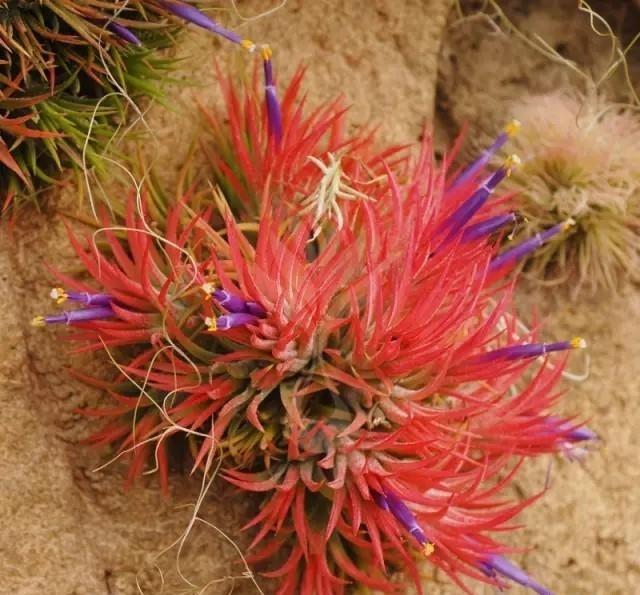
- Prev
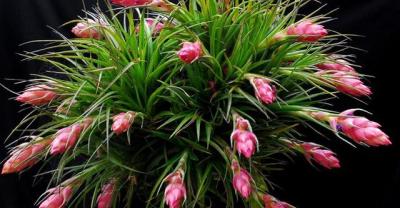
Wild flowers planted in the countryside sell for three yuan each!
Twelve golden chrysanthemums sell for more than 40 yuan. Beauty is very beautiful but expensive. Have you had a drink?
- Next
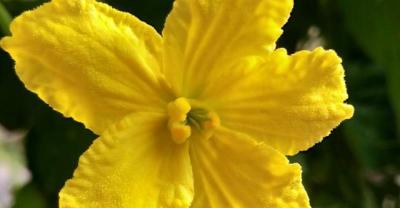
Analysis on the producing area and planting of Japanese wisteria in China
The largest scale of Japanese wisteria introduced into China was when Jiading wisteria Garden was prepared. there were 93 trees in Jiading Wisteria Garden, including more than 30 different varieties.
Related
- Fuxing push coffee new agricultural production and marketing class: lack of small-scale processing plants
- Jujube rice field leisure farm deep ploughing Yilan for five years to create a space for organic food and play
- Nongyu Farm-A trial of organic papaya for brave women with advanced technology
- Four points for attention in the prevention and control of diseases and insect pests of edible fungi
- How to add nutrient solution to Edible Fungi
- Is there any good way to control edible fungus mites?
- Open Inoculation Technology of Edible Fungi
- Is there any clever way to use fertilizer for edible fungus in winter?
- What agents are used to kill the pathogens of edible fungi in the mushroom shed?
- Rapid drying of Edible Fungi

